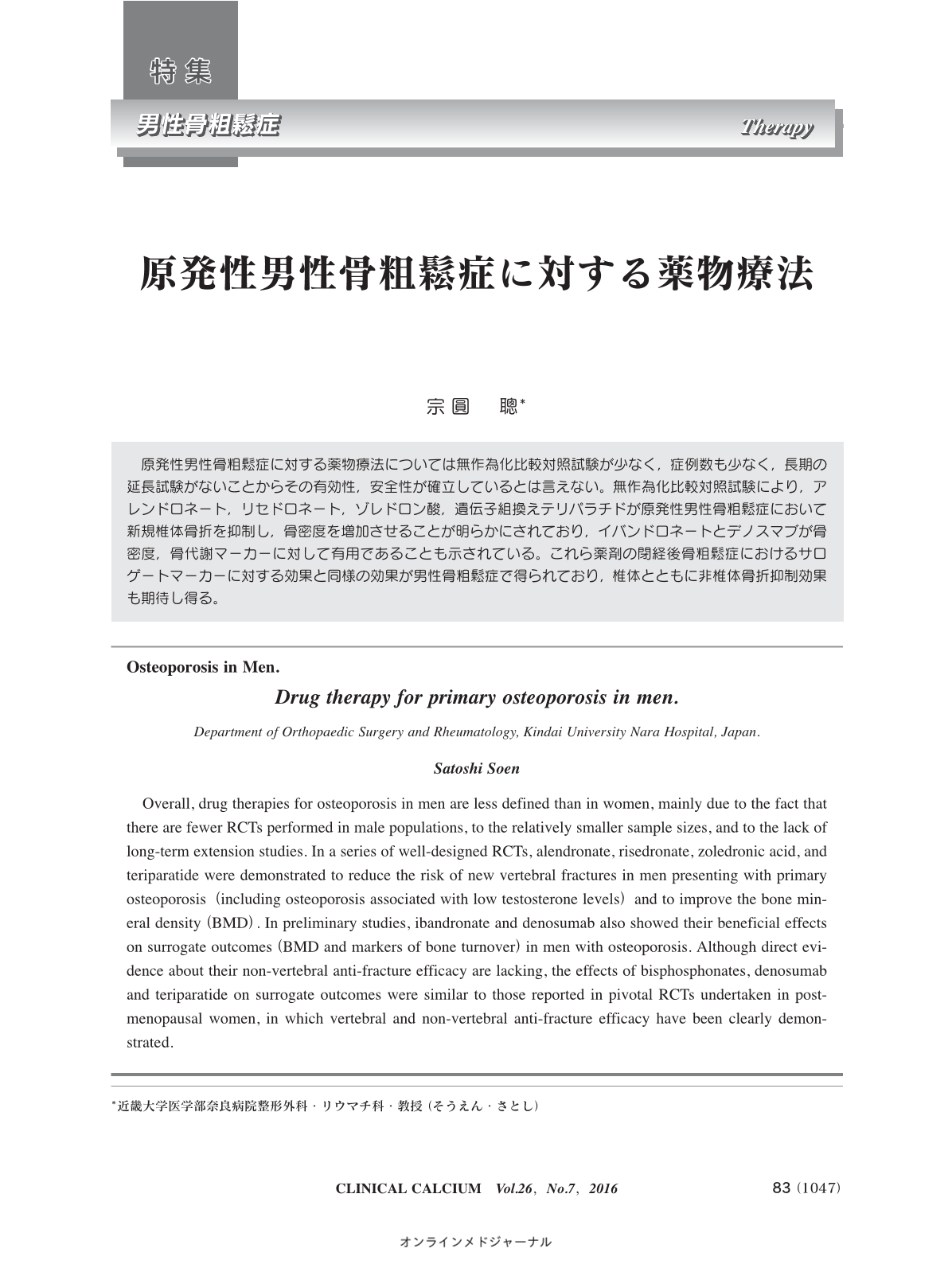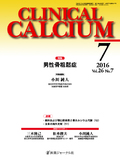Japanese
English
- 有料閲覧
- Abstract 文献概要
- 1ページ目 Look Inside
- 参考文献 Reference
原発性男性骨粗鬆症に対する薬物療法については無作為化比較対照試験が少なく,症例数も少なく,長期の延長試験がないことからその有効性,安全性が確立しているとは言えない。無作為化比較対照試験により,アレンドロネート,リセドロネート,ゾレドロン酸,遺伝子組換えテリパラチドが原発性男性骨粗鬆症において新規椎体骨折を抑制し,骨密度を増加させることが明らかにされており,イバンドロネートとデノスマブが骨密度,骨代謝マーカーに対して有用であることも示されている。これら薬剤の閉経後骨粗鬆症におけるサロゲートマーカーに対する効果と同様の効果が男性骨粗鬆症で得られており,椎体とともに非椎体骨折抑制効果も期待し得る。
Overall, drug therapies for osteoporosis in men are less defined than in women, mainly due to the fact that there are fewer RCTs performed in male populations, to the relatively smaller sample sizes, and to the lack of long-term extension studies. In a series of well-designed RCTs, alendronate, risedronate, zoledronic acid, and teriparatide were demonstrated to reduce the risk of new vertebral fractures in men presenting with primary osteoporosis(including osteoporosis associated with low testosterone levels)and to improve the bone mineral density(BMD). In preliminary studies, ibandronate and denosumab also showed their beneficial effects on surrogate outcomes(BMD and markers of bone turnover)in men with osteoporosis. Although direct evidence about their non-vertebral anti-fracture efficacy are lacking, the effects of bisphosphonates, denosumab and teriparatide on surrogate outcomes were similar to those reported in pivotal RCTs undertaken in postmenopausal women, in which vertebral and non-vertebral anti-fracture efficacy have been clearly demonstrated.



